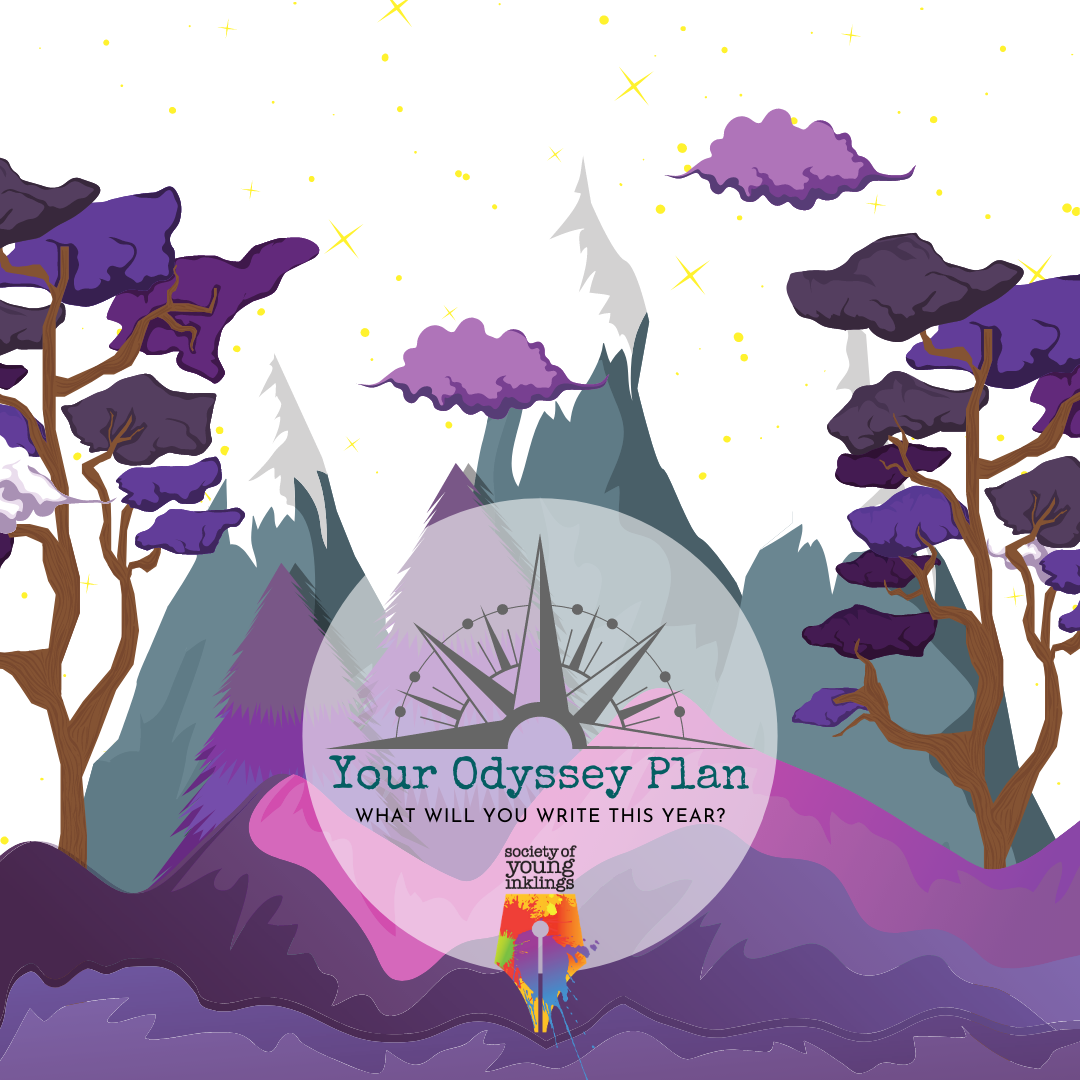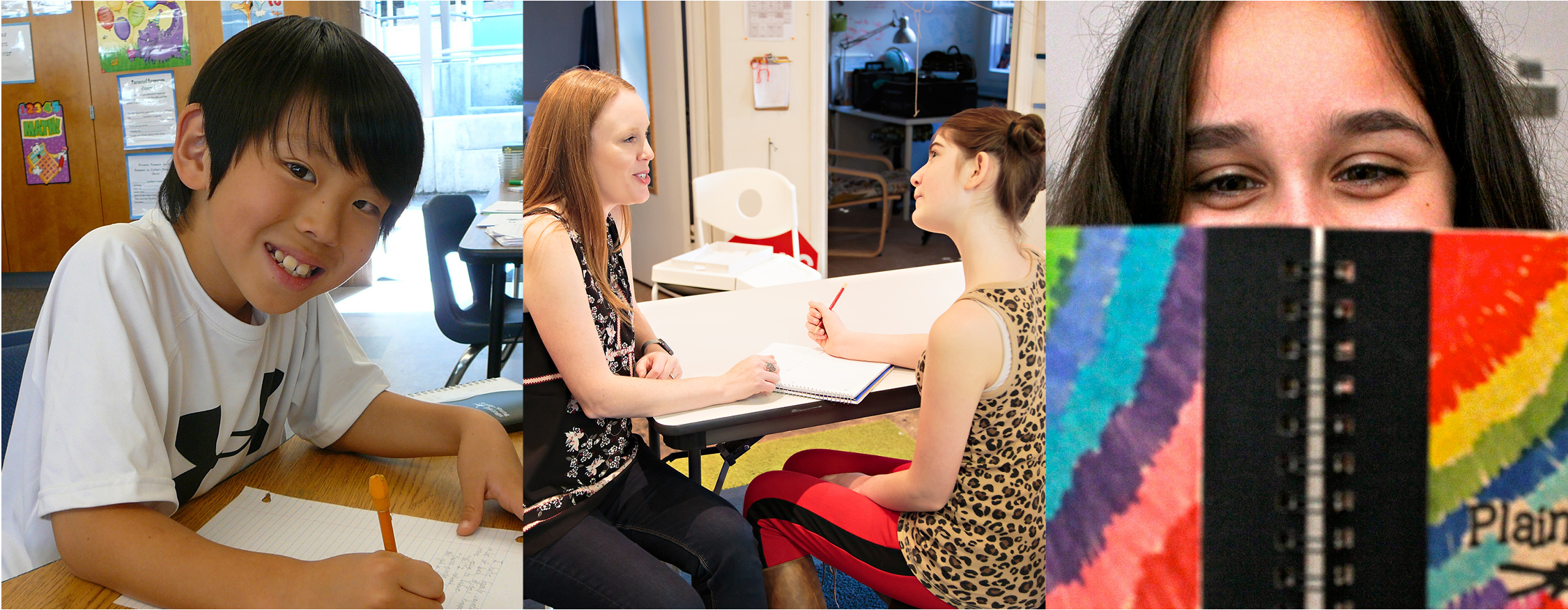
Down the Rabbit Hole: How Curiosity Unlocks Your Child’s Learning Potential
Learning may look different this year, but what if instead of slogging to a screen each day, your writer leads the charge? What if they discover the joy of catching hold of a question and following their curiosity into a big, exciting challenge?
Let’s explore how to make that possible together!

Watch the MASTERCLASS
Learn how creative writing awakens and builds lifelong learning skills such as goal setting, resilience, problem-solving, adaptability, and critical thinking. Author and Executive Director of Society of Young Inklings, Naomi Kinsman, provides easy, practical strategies you can use to support your writer as they tap into their natural curiosity and creativity.

Make a Plan
Use our list of questions to make a practical plan for discussing your writer’s creative projects with them. Creative writing is a powerful vehicle for growth, but that growth happens because of the story the writer tells themselves. Help them shape that story by asking questions that illuminate what’s really happening in their process, and by celebrating their wins with them.
FIRST: Watch the Masterclass
NEXT: Make a Plan
We covered a number of tools and programs in the masterclass. If you’re looking for a starting place, we recommend that you make an Odyssey Plan with your writer. Our Fall 2020 Odyssey Plan consultations have closed, but we have created self-serve tools for your writer to create one on their own at any time. Alternatively, you can work with one of our mentors to create a plan and carry it out.

Whatever creative project your writer takes on, we encourage you to support them with on-the-fly conversations about their process and creative work. These discussions provide space for your writer to have a-ha moments about their growth. When they name what’s happening, the progress and development becomes all the more real.
The doorway into a conversation like this is to truly be interested in the story itself. When you value your child’s imaginative output, their emerging voice, you elevate their commitment to growth. Their work matters. They know it does because you care enough about it to ask questions and to follow where those questions lead.
Some questions to try:
- Tell me about your character.
- What is your character hoping will happen next? Why? What is he/she doing to try to make that happen?
- Is anyone getting in your character’s way right now? Who? Why? How is your character reacting?
- Choices: Would your character rather x or y?
- What’s the weather like in your story right now?
- Is there a location in the world that you’re excited to write about?
- What’s the most dangerous place?
- What’s the safest place?
- What’s the funniest place?
NOTE: Sometimes writers find it easier to answer questions if there’s more than one possible answer. If that’s the case for your writer, you could phrase the question: “What is one of the funny places in your story?”
- What’s the big problem in the story?
- Do you have any little problems you’re writing about that intrigue you?
- Have any of the events in the story surprised you?
- What scene are you looking forward to writing?
Other general questions might be:
- What’s working in your story?
- What are you most excited about in your story right now?
- What are you trying to figure out next with your story?
- I notice that you’ve been writing a lot. How’s the project coming along?
- Have you imagined what you want the story to look like when it’s done? Will you make it into a printed book? (Then, discuss various options.)
Or observations:
- You’re really sticking with this project–that’s exciting. Do you think something is different about this story? It seems special.
- I don’t think you’ve ever written a novel in letters before. What an interesting approach! How did you land on this particular idea?
Some skills to highlight for your writer are:
- Resilience – Overcoming Blocks
- Divergent Thinking – Coming up with more ideas than they need, pushing their ideas in new directions
- Goal Setting and Progress – Celebrating milestones with them
- Openness to feedback
- Willingness to make a mistake and try again
- Perseverance – Sticking with a project
- Courage – In their subject matter, in their willingness to share …
- Enthusiasm – How they’re inspiring you and others around them
Here’s how the conversation might go:
First, ask a story question about character, the world of the story, or plot. Listen closely for add-on answers. Then, follow your genuine curiosity. For instance:
Parent: What’s the weather like in your story right now?
Writer: Rainy.
Parent: (waits for more)
Writer: I don’t know. I’m bored with my book. Maybe I should start something new.
Parent: What scene are you writing right now?
Writer: All the boring blah, blah, blah. I was so excited to write the chase scene in the castle, but it’s taking so long to get there.
Parent: What’s the chase scene going to be like?
Writer: Super funny. Everyone stumbling over their feet and all kinds of pranks.
Parent: Could you add something funny into the part you’re writing now?
Writer: (immediately) No, that wouldn’t work.
Parent: (waits for more)
Writer: She’s just getting ready for the coronation. Getting dressed and everything. (A tiny smile) Maybe they could lose her crown and have to run all over the place to try to find it. (A bigger smile) Wait. What if …
Set Yourself Up for Success:
Keep in mind that writers are often prickly about their writing when they’re feeling stuck. Try not to be discouraged if the immediate response is, “That won’t work!” Sometimes the a-ha moment doesn’t come in a brief pause, as in the conversation above. Instead, it might happen the next day or the one after that. The point is asking the question to point the writer’s reflection down a fresh path. Often, that’s all writers need to find a fantastic solution.
Highlight the Creative Growth:
In a conversation like the one above, sometimes it’s helpful to offer an observation that highlights what they’ve just done on a deeper level, such as “I love how you were able to figure out the problem and come up with a funny solution like that.”
However, depending on the situation, it may be more helpful to share this feedback a day later, letting your writer know you’re still thinking about what they did, and how/why it impressed you.
The key is for the feedback to be authentic and not forced. Start by talking about the project itself, and then point out the moments where glimmers of something good happens.
Ultimately, talking about our creative work is not unlike talking about our emotions. Sometimes in order to have a deeper-level conversation about it, we need to begin on a practical level.
A final thought:
Unless your writer is used to talking about their writing, or used to talking about their writing with you, specifically, it can take a little time to build the space where this conversation feels natural. As the supporter of the writer, the first step is becoming familiar enough with the project so that you can discuss it generally, and then it will be easier to drop into those deeper level conversations about the process of the writing, about how the drafting, problem-solving, and revision is going.


